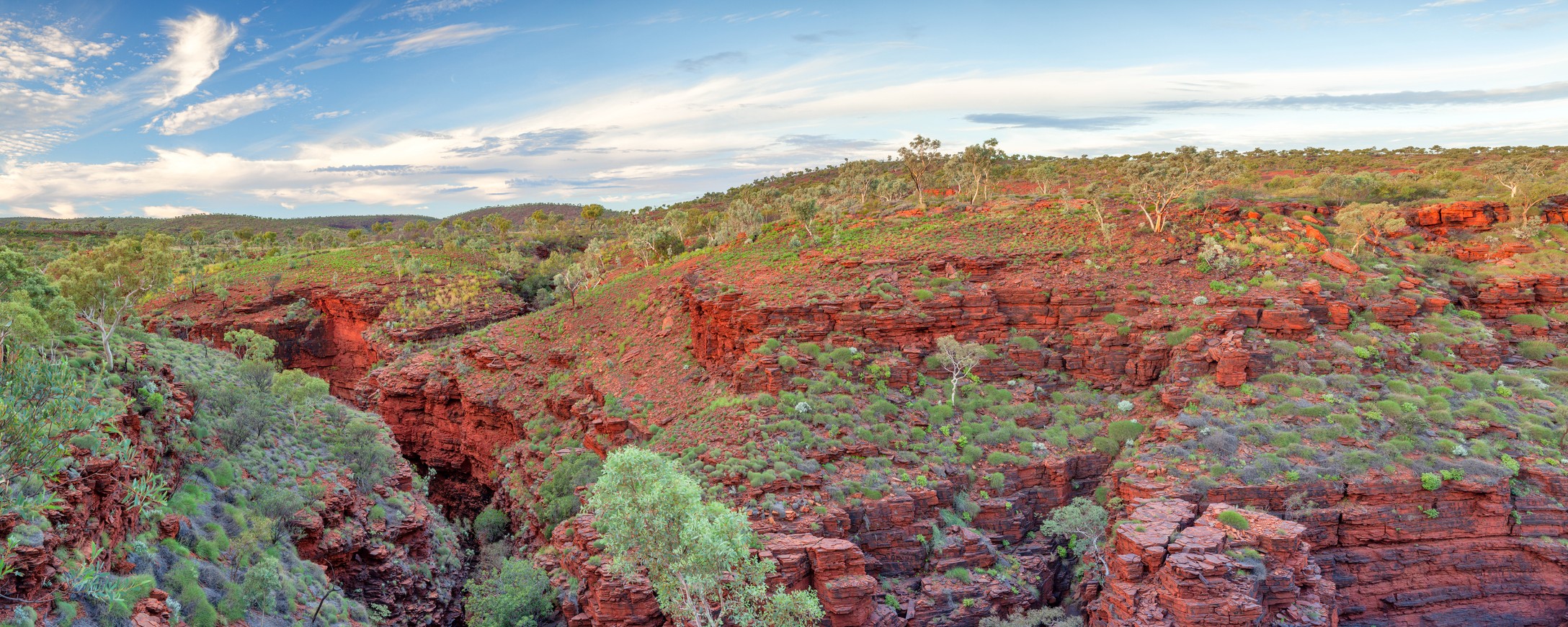North West water supply
See how we're responding to population growth and climate change in the North West to improve water security and supply in the region.
Find out more
Western Australia's north is one of the world's last great wilderness areas with fewer people per square kilometre than almost anywhere else on our planet.To the north of WA is an ancient land with unique Australian culture, wild rivers, deep gorges, and sprawling red and blue colours that makeup the landscape.
Unlike our South West, in recent decades an increase in the total rainfall has been observed in some northern parts of our state, including the Canning Basin and West Pilbara. The increase in rainfall has resulted in more rainfall runoff recharging our catchments in some lucky parts. However, this trend doesn’t apply to all the areas across the North West and is highly inconsistent with many towns experiencing extended periods of little to no rain.
In general, the rainfall our residents in the Pilbara and Kimberley regions rely on has always been highly variable. This is partly because the northern WA coastline lies within the most tropical cyclone-prone region of the Australian coast (Broome to Exmouth). Historically an average of 2 cyclones cross this stretch of coastline each year. However, future climate predictions indicate cyclones will be less frequent but much more intense.
These tropical cyclones bring heavy rainfall with them and make for an extremely valuable contribution to our surface and groundwater supplies; however, their variability means we can't solely rely on the water sources they recharge. Forecasts indicate the intervals between rainfall events will become more variable across the northern regions over the next century.
While we'll likely see fewer cyclones, or possibly a later start to the cyclone season, a predicted increase in their intensity will mean greater potential for damage to our water infrastructure. In response, we're continuously working to ensure our infrastructure can withstand these extreme events.
Around 42% of treated wastewater is recycled in the North West. It's used for a range of purposes such as irrigating golf courses and public open spaces.
Wastewater recycling plays a vital role in supporting ongoing economic activity and population growth, and we’re committed to further exploring recycling opportunities in the region.
Given the high temperatures of the North West we continue to work with communities and businesses on a range of programs to reduce water use in the area. These include:
Find out more about sustainable water initiatives and programs in the North West.
We can all take action on climate change and reduce our water use. Find out what you can do to save water starting today.
See how we're responding to population growth and climate change in the North West to improve water security and supply in the region.
Find out more